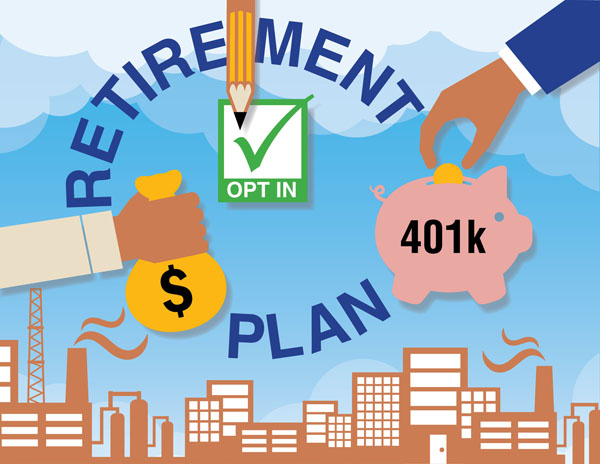Borrow from Your Pension Account? What are the pros and cons?

Can I borrow money from my pension? Is it true?
Yes, it's true. There are many pension plans in the United States to develop the habit for savings for young people so they won’t worry when retired. But it is inevitable to spend large amount of money (such as buying a house), so borrowing money from pension account is also a feature of the flexible pension account. However, you need to understand the limitations and advantages and disadvantages are recommended to understand before doing it.
Available Pension Plans
Not all pension plans are available to borrow money, but only work-related accounts are available: 401 (k) or 403(b) plans. Both plans are available to most people. However, other common IRA or Roth IRA accounts are unable to offer the loan plan.
Maximum amount
50% of 401 (k) plan, or $50,000, take the smaller amount as the borrowing limit.
Payoff the loan
Unlike the normal loans, it must be paid off within 5 years. And if you leave your current job during the loan period, it becomes a loan balance that accelerates the repayment of 401k.
What are the benefits?
It's not an early distribution with your own loans. Know that if you need it in the short term to withdraw money from your 401 (k) retirement account and are under 59 1/2 years old. Or qualify for The Rweed. In addition to the taxable income that is included in the withdrawal year, an additional 10% of the total withdrawal is paid.
With your own borrowing, the interest paid on the repayment is also paid to your own pension, interest is not paid to the bank but to pay their own plan.
Because it's on your own pension loan, you don't want hard Pull to check your credit score like a bank loan.
What are the disadvantages?
Only the current 401 (k) plan balance of the deposit (current lying company) can be calculated into the loan amount, even the 401 (k) of the previous company Roll over cannot be counted as the amount of the loan.
As stated in the repayment time, leaving the current company becomes the 401 (k) Loan that is paid off earlier, rather than the original five-year term with 401 (k) Loan. The interest rate of 401 (k) Loan is not necessarily the best, and you may get a better interest rate when you go out to find a financial institution (e.g. a general bank). Repayment spent with after-tax's principal principal and interest, repaying the 401 (k) Loan you borrowed, and the final repayment is still back to the 401(k) plan, but the lump sum is returned to the original 401(k) property, and when the conditions are met (59 1/2 years old or Hardship), the portion of the distribution will still be included in the current year's doubletax, equal to the interest portion of the repayment.
When you borrow money with your own 401 (k) plan, it is equivalent to damaging the opportunity cost of the funds that would have been in the plan (you would have invested in other assets, with profits to be used in retirement). Some companies' 401(k) plan, will stipulate that if an employee can't borrow 401 (k) from his or her salary when he or she has not paid it off, the company's match up up amount will no longer provide it (the company will also match a portion of the amount directly to the employee's 401 (k) plan, and there will be no personal salary from the employee during the loan period.
Amount of annual salary transfer to 401 (k) Plan?
In 2019, the limit of The Tser 401 (k) is $19,000 and the maximum amount for over 50 years of age can be raised to $25,000 (so-called catch-up)
The limit for Both Tsuer 401 (k) and Roth 401 (k) in 2020 is $19,500, and the maximum amount of 50 years and older can be raised to $26,000 (so-called catch-up)
On the whole, borrowing with your own 401 (k) Plan is not a recommended operation, but it is a reference that can be considered when necessary.



